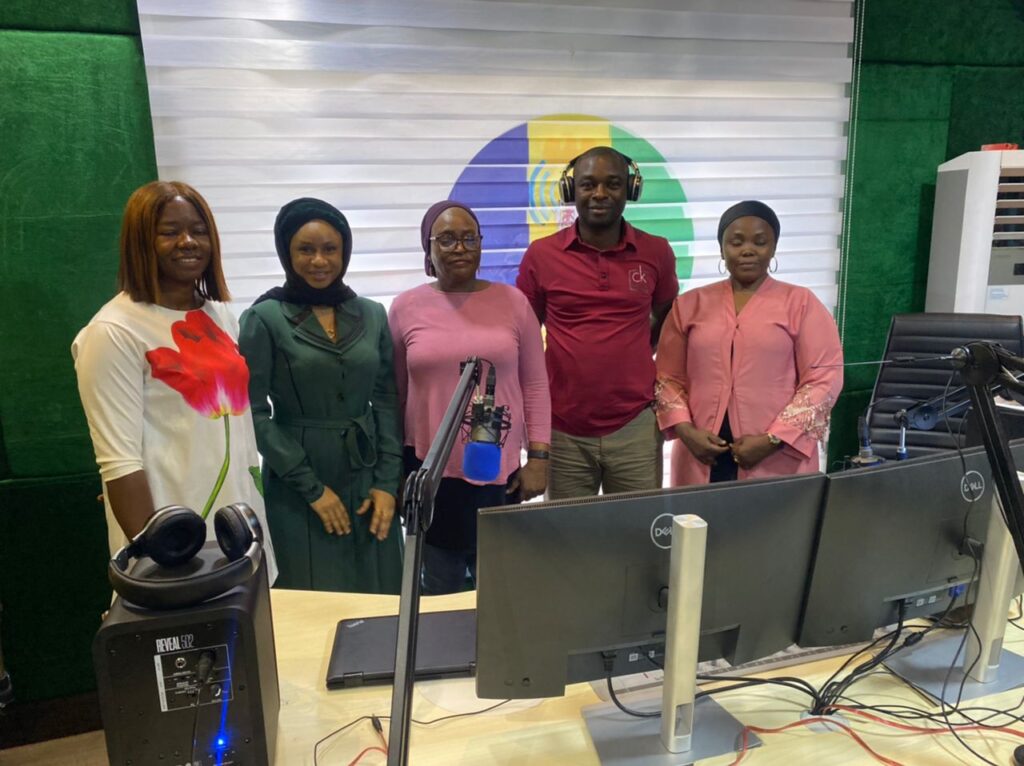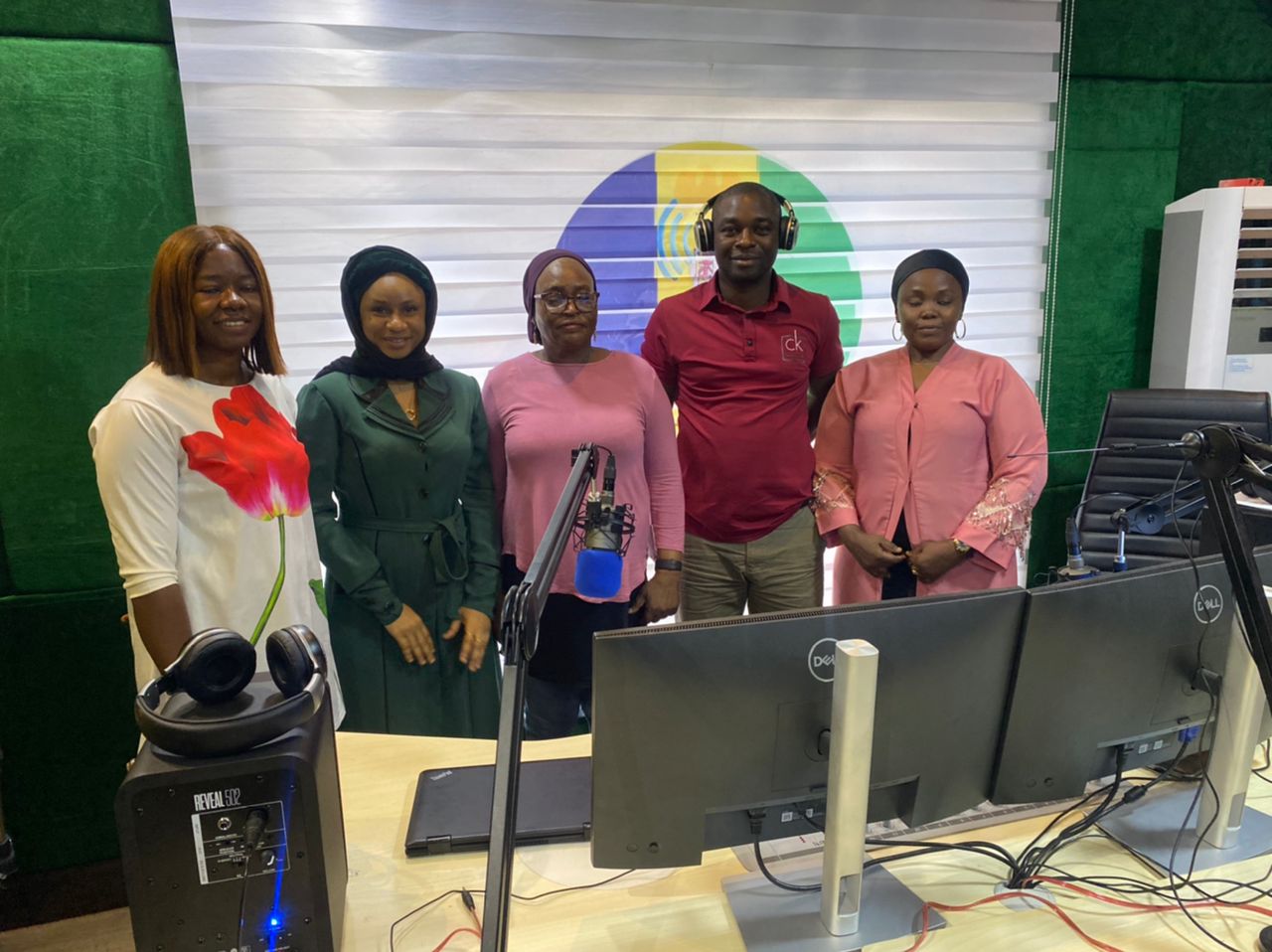Editor’s note: In the ongoing quest to address Nigeria’s pressing food security challenges, Dakore Ekpendu, a rising investigative journalist known for her grassroots and ‘Pidgin’ Radio programme, “Public Intel,” has forged a pioneering collaboration with the Open Forum on Agricultural Biotechnology (OFAB). Together, they embark on a journey to explore the transformative potential of biotechnology in revolutionising crop yield productivity and tackling the relentless issue of food waste. Through a captivating series of episodes, this collaboration brings together distinguished experts and advocates to illuminate the pivotal role of biotechnology in ensuring a brighter and more food-secure future for Nigeria and the entire African continent. Join us as we delve into this groundbreaking narrative of scientific innovation, informed action, and the quest for sustainable solutions in the realm of food security.
Background: Biotechnology and Food Security in Nigeria
Biotech’s Role: Biotechnology, in the context of food security, represents the application of scientific techniques to modify and enhance crops, livestock, and food production processes. It offers promising avenues to address the complex challenges of food security in Nigeria, with the potential to boost crop yields, improve food quality, and reduce post-harvest losses.
Challenges: Nigeria faces multifaceted challenges in ensuring food security. Rapid population growth, climate change, and outdated farming practices strain the ability to meet the nutritional needs of its citizens. Pests, diseases, and unpredictable weather patterns threaten crop production, leading to food scarcity and rising prices. Inefficient supply chains and inadequate storage facilities contribute to substantial post-harvest losses.
Biotech Opportunities: Biotechnology presents significant opportunities to overcome these challenges. Genetically modified (GM) crops can enhance crop resistance to pests and diseases, improve nutritional content, and increase yields, ensuring a more stable food supply. Biotech-driven innovations in crop storage and preservation can extend shelf life, reducing food wastage. Moreover, biotechnology can lead to the development of drought-resistant crops, crucial for adapting to changing climate conditions.
Local Adoption: While the potential benefits of biotechnology in food security are clear, there are hurdles to overcome in Nigeria. Public perception, regulatory frameworks, and limited access to biotech resources need to be addressed for widespread adoption. Public awareness and education are essential in building trust and acceptance of biotech solutions.
In a nutshell, biotechnology holds immense promise for enhancing food security in Nigeria. By addressing the challenges through innovative biotech solutions, the nation can move towards a future where nutritious food is more accessible, wastage is minimized, and agricultural practices are sustainable, ensuring a secure food supply for all its citizens.
It was therefore in light of this urgent need to secure a reliable and bountiful food supply, a challenge that extends far beyond Nigeria and resonates across the African continent, the Open Forum on Agricultural Biotechnology (OFAB) forged a partnership with Ms. Dakore Ekpendu’s grassroots-focused programme, “Public Intel.” Airing on Nigeria Police Radio Abuja and syndicated at Aso Radio Abuja, this programme is dedicated to local security and development, with strong advocacy for improving the quality of life in rural communities. Through this collaboration, OFAB aims to explore and address critical issues surrounding food security in the region.
This collaborative effort seeks to unravel the potential of biotechnology in redefining the landscape of food security. Their shared mission is to delve into the intricate world of biotechnology, exploring its capacity to significantly boost crop yields and effectively address the pervasive and alarming concern of food waste. Through a series of illuminating episodes, this endeavor aims to shed light on the nexus between biotechnology and food security, offering valuable insights and potential solutions to a global issue that affects millions. Together, OFAB and Ekpendu will explore the transformative power of biotechnology to revolutionize crop yield productivity and combat the alarming issue of food waste.


Episode 1: Illuminating the Biotechnology-Food Security Nexus
The inaugural episode, “Understanding Food Security and the Biotechnology Connection,” cast the spotlight on Dr. Rose Gidado, the Director of Agric Biotechnology at the National Biotechnology Development Agency (NABDA). Gidado, a distinguished figure in the agricultural biotechnology realm, commenced the discussion by emphatically highlighting the potential of biotechnology. Through innovative techniques such as genetic modification and precision breeding, biotechnology has the capacity to modernize traditional agricultural practices while enhancing crop resilience, bolstering resistance to pests and diseases, and ultimately amplifying yields. Gidado underscored how these advancements hold profound implications for addressing the monumental challenge of feeding Nigeria’s burgeoning population.
Episode 2: Unveiling Biotechnological Solutions to Tackle Food Waste
The second episode, titled “Confronting Food Waste with Innovative Biotechnological Solutions,” featured Dr. Andrew Illoh, a scientist at the Biotechnology Advanced Research Center of Sheda Science and Technology Complex Abuja (SHESTCO). Iloh dived deep into the often-overlooked facet of food security – wastage. His eloquent discourse illuminated how biotechnology offers ingenious solutions to minimize post-harvest losses. Drawing from real-world examples, he showcased biotech-enhanced storage techniques that significantly extend the shelf life of perishable goods, leading to a marked reduction in spoilage. Furthermore, Iloh underscored the potential of biotechnology in developing crops with inherent resistance to pests and diseases, thereby reducing reliance on chemical interventions and drastically cutting down on food wastage.
Host’s Perspective: A Catalyst for Informed Action
Dakore Ekpendu, the host of “Public Intel Security Africa,” expressed her profound enthusiasm for the OFAB collaboration. She views this partnership as a dynamic platform to ignite informed discussions and drive actionable solutions for a more food-secure Nigeria, particularly in underserved rural areas. Ekpendu firmly believes that by bringing together luminaries like Dr. Rose Gidado and Dr. Andrew Illoh, the program is not only raising awareness but also inspiring a collective responsibility to contribute to sustainable solutions for Nigeria’s food security challenges.
Public Intel Security Africa: Advocating for Solutions
The “Public Intel Security Africa” radio program stands as a pinnacle of solution journalism with advocacy at its core. It signifies a crucial step toward securing a brighter future for grassroots communities by addressing pressing national issues. By putting the spotlight on biotechnology’s indispensable role in food security, this collaboration seeks to empower citizens with knowledge and inspire proactive engagement in mitigating Nigeria’s food-related challenges.
A Brighter, More Food-Secure Future
Amid Nigeria’s multifaceted food security challenges, initiatives like the one spearheaded by Dakore Ekpendu and OFAB offer a beacon of hope. By harnessing the potential of biotechnology, informed decision-making, and collaborative efforts, the dream of a food-secure Nigeria is within reach.
Stay Informed and Engaged
For those eager to explore these enlightening episodes and remain updated on future broadcasts, tune in to Nigeria Police Radio, 99.1FM Abuja, every Friday at 1 PM. By actively participating in such initiatives, individuals can play a pivotal role in realizing a more secure and food-abundant Nigeria.

